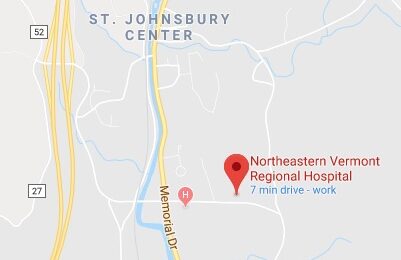Vital Signs: Number of Overdose Deaths Continues to Rise
The COVID-19 pandemic has impacted the lives of every person in our community. We may have gotten sick or know someone who has gotten sick. Some of us had to care for children and try to work from home, or lost our jobs. Some of us needed extra assistance paying for food, housing and other bills. We experienced fear, stress and anxiety. Social distancing and staying home caused feelings of isolation.
I am probably not telling you anything you didn’t already know. But perhaps something you may not know is that in addition to these impacts, the use of substances to help cope with the fear, stress, anxiety, and feelings of isolation increased, as did overdose-related deaths.
According to recent provisional data released from the Centers for Disease Control and Prevention, between December 2019 and December 2020 drug overdose deaths in Vermont rose from 118 to 186, a 57.6 percent increase.
In looking at the data, it appears that there was a sharp increase specifically in opioid-related overdose deaths last year. In March 2021, the Vermont Alcohol and Drug Abuse Program released a data brief that reported preliminary 2020 opioid-related accidental and undetermined fatality data show an increase of 38 percent in opioid-related fatalities, from 114 deaths in 2019 to 157 in 2020. The number of opioid overdose visits to the emergency room that didn’t result in death also increased by 46 percent from 2019 to 2020, according to data from the Vermont Department of Health (VDH).
Data from VDH shows that this trend is continuing into this year, with the number of emergent care visits for opioid overdose and the number of Vermonters dying by opioid overdose in 2021 higher than previous years.
The opioid epidemic was a public health crisis long before COVID-19. But with the increase in substance use and overdose deaths during the pandemic, we need to reinforce prevention activities in our communities and lower or remove barriers to accessing treatment for substance misuse.
In our region, Medication Assisted Treatment (MAT), a combination of the use of medicine with counseling and behavioral therapies, is used to treat substance use disorders. The Hub and Spoke is Vermont’s system of MAT. In Caledonia and Essex counties, BAART is the “Hub” that provides daily support for patients with complex addictions, and five primary care practices and a designated mental health agency in Derby operate as “Spoke” sites to offer ongoing opioid use disorder treatment with general health care and wellness services.
The number of people receiving MAT services in Vermont for opioid use disorder rose in 2020 compared to the previous year. During the pandemic, MAT providers, much like a lot of other health and mental health care services, switched providing services via telemedicine to decrease in-person contact. Telemedicine allows for the delivery of health care services and clinical information using technology.
At hospitals throughout our state including Northeastern Vermont Regional Hospital, MAT is also offered to people coming into the Emergency Department (ED) with opioid use disorder. Additionally, recovery coaches from the St. Johnsbury Kingdom Recovery Center are embedded in the ED to provide addiction recovery support services.
There are a variety of harm reduction and overdose prevention programs at the state and local level, according to VDH, some of which include:
- The prescription drug disposal program, which provides education and information about safely storing and get rid of prescriptions you don’t want or need anymore.
- The opioid overdose prevention and naloxone rescue program, which allows for the distribution of naloxone, commonly referred to as Narcan, a medicine that quickly reverses an opioid overdose, and provides overdose response training, as well as referrals to treatment.
- Syringe Service Programs, which help prevent infectious diseases, connect clients to treatment, and reduce overdose deaths.
- KnowOD, a prevention program that provides education on ways to reduce the risk of opioid overdose.
As we continue to navigate our way through this pandemic and as the opioid epidemic persists, it will be extremely important to continue focusing on prevention strategies as well as treatment and recovery resources.
If you are concerned that you may be at risk for or are currently struggling with substance misuse, please contact your primary care provider today. Or, you can contact one of the following facilities to learn about treatment options:
- BAART Behavioral Health Services: (802) 334-0110 (Newport); (802)748-6166 (St. Johnsbury)
- Journey to Recovery Community Center, Newport: (802) 487-0233
- Kingdom Recovery Center, St. Johnsbury: (802) 751-8520
- Northeast Kingdom Human Services: (802) 334-5246 (Newport); (802) 748-1682 (St. Johnsbury)
Email us your suggestions at vitalsigns@nvrh.org, or mail them to NVRH, c/o Katie Bocchino, P.O. Box 905, St. Johnsbury, VT, 05819.
Sitemap | Privacy Policy | Site developed by Flek, Inc.
Northeastern Vermont Regional Hospital © 2020

